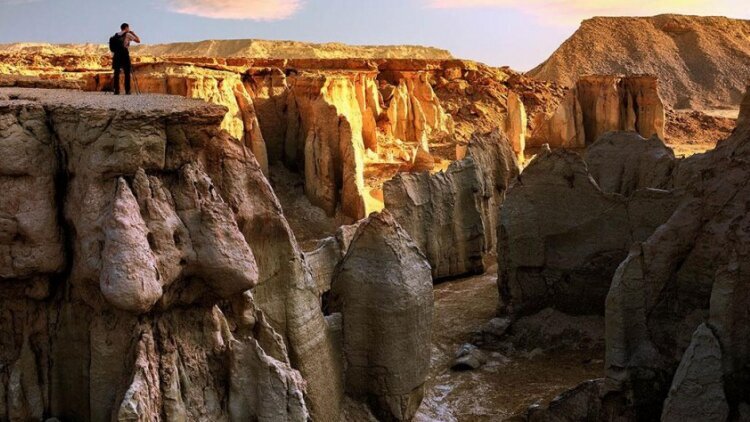Qeshm Geopark plans to promote sustainable tourism

TEHRAN – The UNESCO-designated Qeshm Geopark plans to promote sustainable tourism and launch a campaign to empower local communities and foster job creation, its director said on Wednesday.
Plans to empower women, support local communities and job generation as well as the cultivation of local products (geo-products) are on the agenda for Qeshm Geopark, Sajad Eshgarf said.
“People have a key role in the successful implementation of sustainable development in a geopark,” the official said, referring to the importance of local participation.
“By creating sustainable livelihood, there will be more motivation to protect natural heritage and cultural values, and the sense of responsibility among the local community will be strengthened.”
As the World Tourism Organization confirms, sustainable tourism development requires the participation of the stakeholders in a well-contoured political environment. “Creating sustainable tourism development is a long-term and continuous process that needs monitoring the impacts of tourism on the destination, and introducing corrective measures along the way.”
Qeshm Island UNESCO Global Geopark is part of the huge mountain range of Zagros, which has been deformed and folded as the result of the last phase of the Alpine orogeny in the Plio-Pleistocene.
The geological formations of this mountain belt belong to the Late Precambrian to Cambrian (more than 480 million years old) and include salt diapirs attributed to the Precambrian period called the Hormoz Series.
The island has abundant wildlife, including birds, reptiles, dolphins, and turtles. In Qeshm Island, zoogeographical areas of Palearctic and Oriental, and phytogeographical areas of Afro-tropical, Oriental, and Eurasian, are meeting each other, which generated a huge variety of fauna and flora.
Moreover, Qeshm is fringed with biologically diverse mangrove forests, attractive beaches, and 60 Bandari villages. Its blistering interior features geologically significant canyons, hills, caves, and valleys, most of which are protected as part of the UNESCO-recognized Qeshm Island Geopark – bliss for nature lovers.
AFM
